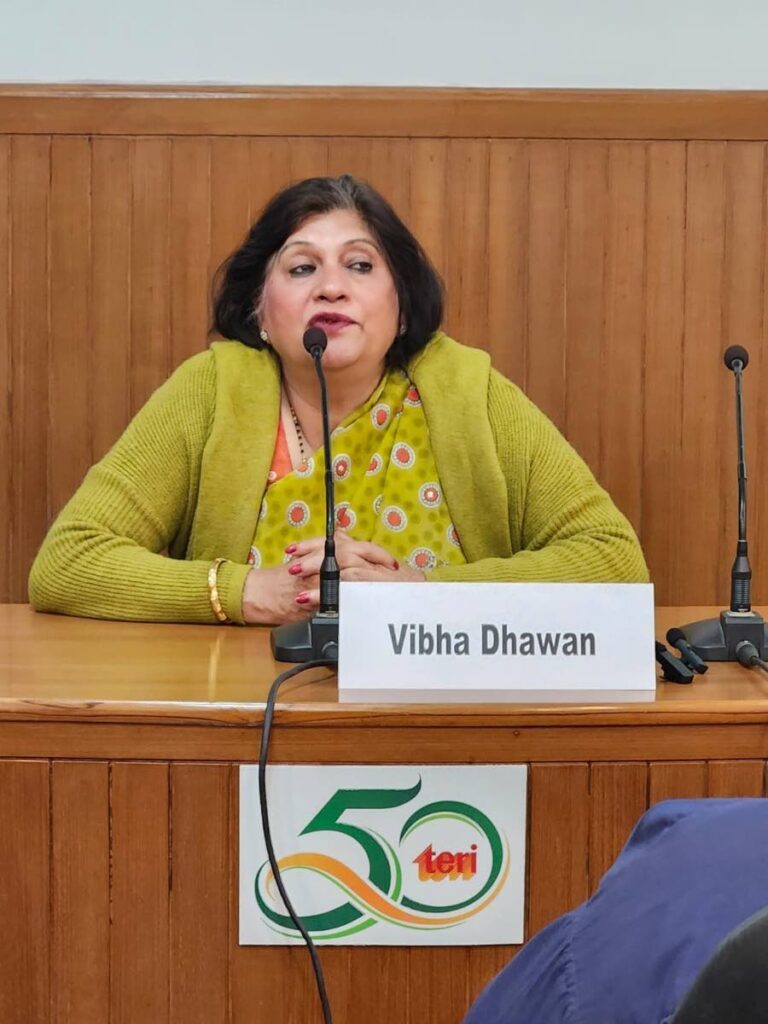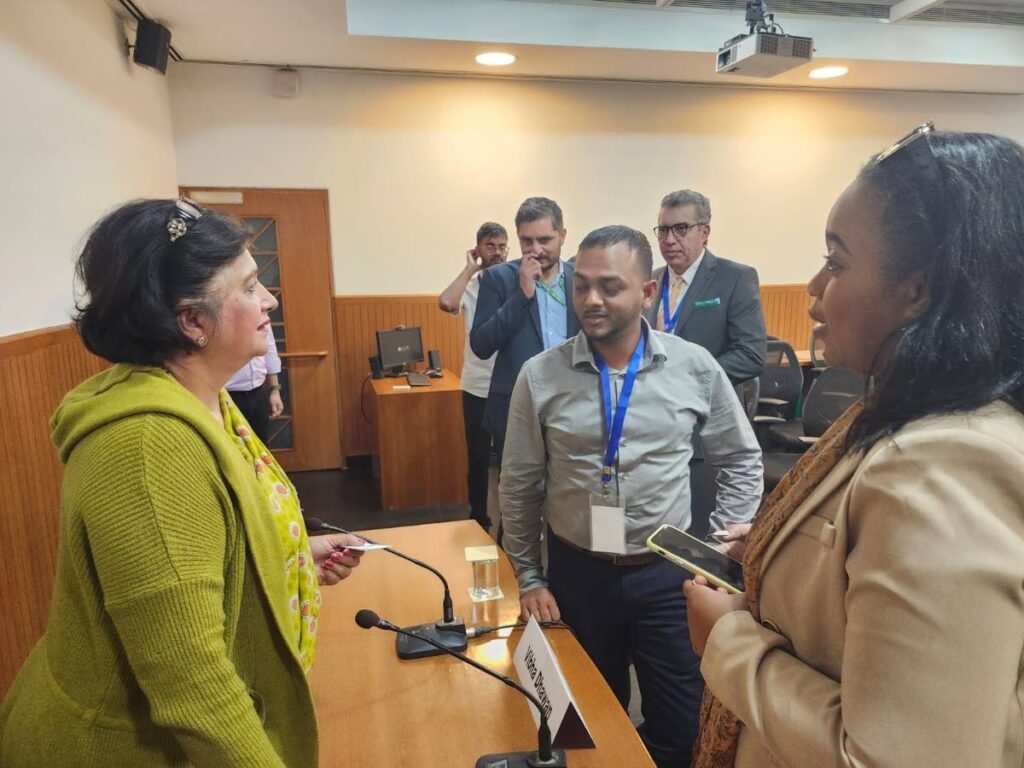Indian energy resource head: Change mindset to fight climate change

The Energy and Resources Institute (TERI) director, Dr Vibha Dhawan, says although it is a daunting task and time is rapidly running out, she remains optimistic the world will overcome the effects of climate change.
However, what this means, Dhawan said, is for people and governments to change their attitude and mindset that climate change is someone else's problem to solve.
She made her feelings known during a meeting on Monday with journalists from Latin America and the Caribbean (LAC) who participated in an eight-day familiarisation tour of India.
The meeting was held at TERI's headquarters in Darbari Seth Block, Lodhi Road, New Delhi, India.
Journalists from seven Caribbean countries, including TT, and 12 Latin American countries are participating in the tour.
It was arranged by the Indian government with the purpose of enlightening participating journalists on the "New India" initiative, which aims to move that country from developing to developed status within the next 20 years.
TERI is a 50-year-old research institute specialising in research into energy, sustainable development and the environment.
Its scope of work includes studying the effect of climate change and finding ways to mitigate against it through energy efficiency, biotech research and development and social transformation.
Dhawan said to reverse climate change, or at least minimise its effect, calls for a global reset in attitudes that this phenomenon is someone else’s problem.
She cited, as an example, the reluctance of some developed countries to share technology without licensing it, so as to protect trade secrets, even if this knowledge could help in combating climate change.
"But it’s just one planet we live on. So if one country is green thanks to its technology, but they won’t share this information with others…look, air does not know international boundaries. So it’s either we are all in this together or not," she said.
Saying India, as a developing nation, is committed to going green in terms of using renewable energy and reducing its considerable carbon footprint, she said its solutions are tailor-made to include sensitive small and medium enterprises (SMEs).
She said while India and TERI are willing to share advances in alternative fuels that are more environmentally friendly, every country has to find solutions to going green which are tailored to its unique geographical and socio-economic realities.
In other words, she said, India’s solutions may not necessarily work for other countries.
However, this does not mean India won’t assist others in working towards developing and/or enhancing their own climate-change mitigation strategies.
On the LAC communities, she said TERI has played a major role in developing Guyana’s solar-energy push by providing solar panels and technical information, so much so that India’s High Commissioner to Guyana, Dr Amit Telang, asked TERI to consider working with other Caricom nations to develop solar energy as a realistic form of alternative energy.
“If it is one thing that Latin America and the Caribbean has been blessed abundantly with it is sun, so solar energy remains very viable.”
She cautioned that even alternative energy sources and resources can come with unique problems, which if not dealt with, will be counterproductive to the push to fighting climate change and its deleterious effects. She gave an example of what she meant, saying one of the things TERI is researching is micro-solar panels, since the current panels are so large as to present a problem of space.

“So we can’t cut down trees to clear land for solar panels, can we? We are looking at developing micro-panels that can fit on the roof of houses, yet still contain the capacity to provide the energy as provided by larger panels.”
Dhawan said TERI recognises that the Caribbean is particularly vulnerable to rising seas and erosion. Such at-risk countries should focus on finding solutions now rather than scrambling to do so when the sea rushes in to reclaim land.
The biggest global challenge to fighting climate change, she opined, is getting everyone to understand they play a role in this fight, individually and collectively. Once the mindset is changed and there is a willingness to buy into the need to access alternative clean energy and adjust habits that damage the environment, the battle would be won.
Asked if she believes humanity is losing the war to climate change, she said, “I am a very optimistic person, so I believe once we change our mindset as the human race, action will follow that will reverse climate change or at the very least, minimise or mitigate its effect.”
It’s only one planet we all have to live on, she reiterated.
TERI’s goals:
– Enhancing access to clean energy for all
– Helping a global transition to renewable energy pathways
– Enhance energy efficiency, especially in industries, public utilities and buildings
– Facilitating more efficient use of materials, especially iron and cement
– Enhancing conservation, utilisation of and access to water, including watershed management
– Enabling the planning and governance of environmentally sustainable cities through green buildings and through management of solid waste, sewage, sanitation, mobility and air quality
– Building resilience to adverse impacts of climate change due to cyclones and variations in hydrology and temperature
– Accelerating pollution abatement through innovative policies and environmental treatment products
– Enhancing ecosystem services, especially in forestry and biodiversity
– Developing green mobility solutions
– Enabling sustainable food production and nutritional security through quality planting material, bio-based agricultural inputs and crop diversification; and
– Developing innovative solutions for clean air, regionally and in cities.
Editor’s Note: Managing Editor KEN CHEE HING is representing Newsday at the Latin America and Caribbean familiarisation tour of India.


Comments
"Indian energy resource head: Change mindset to fight climate change"